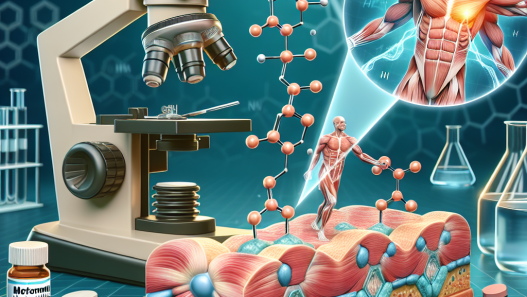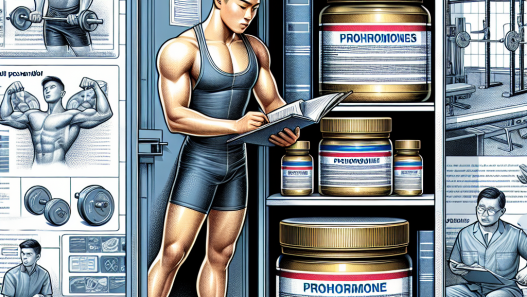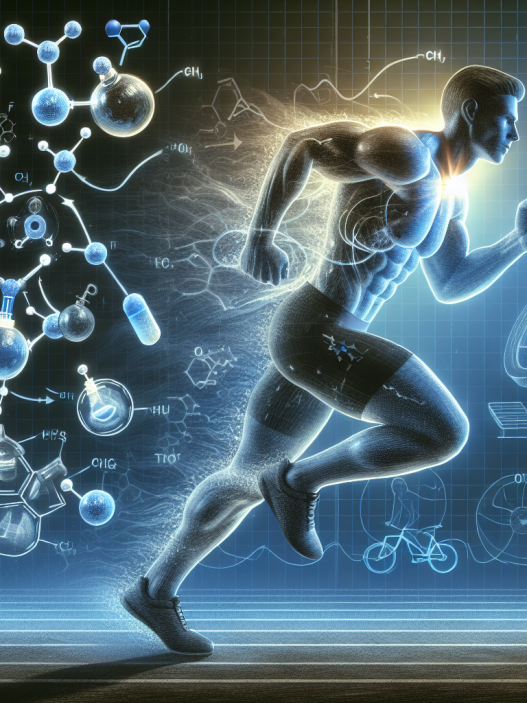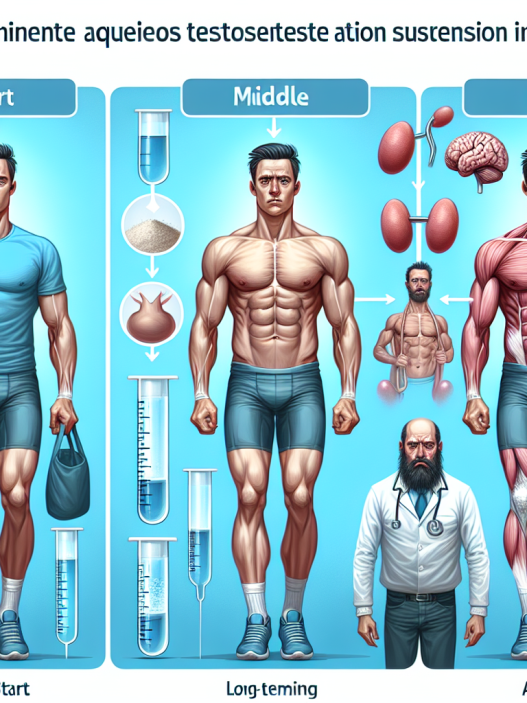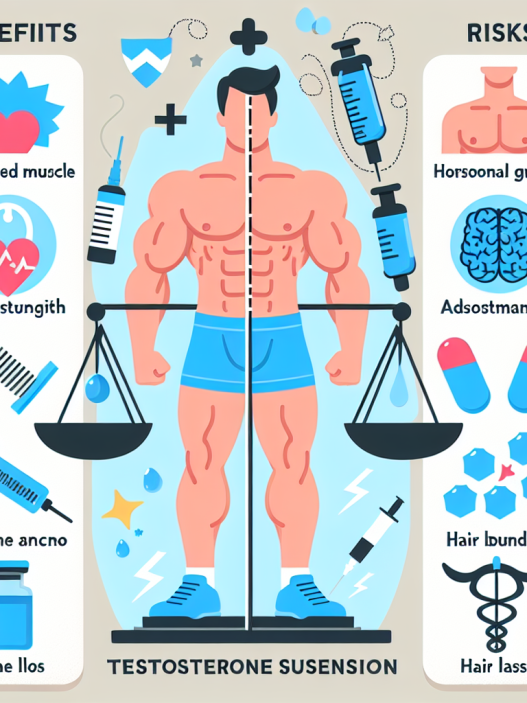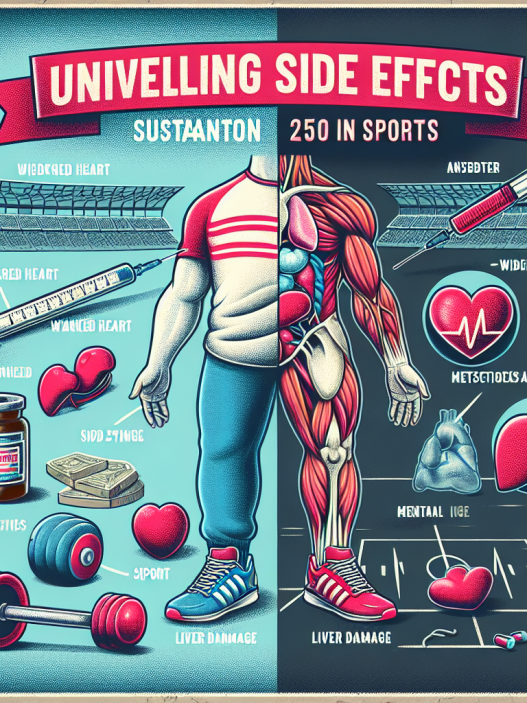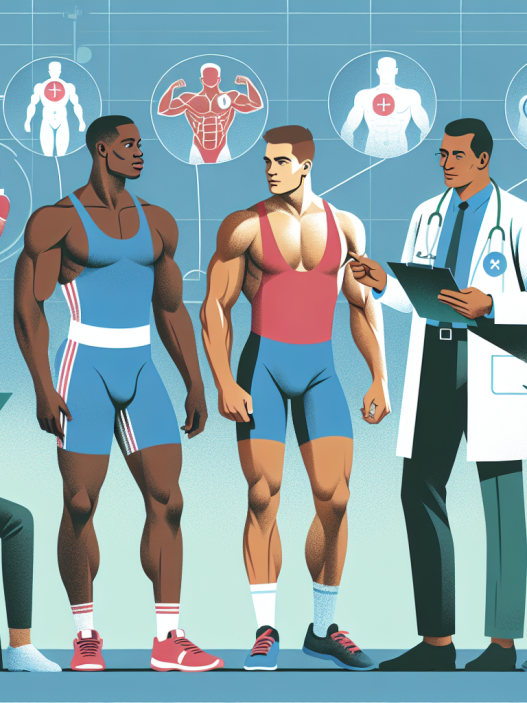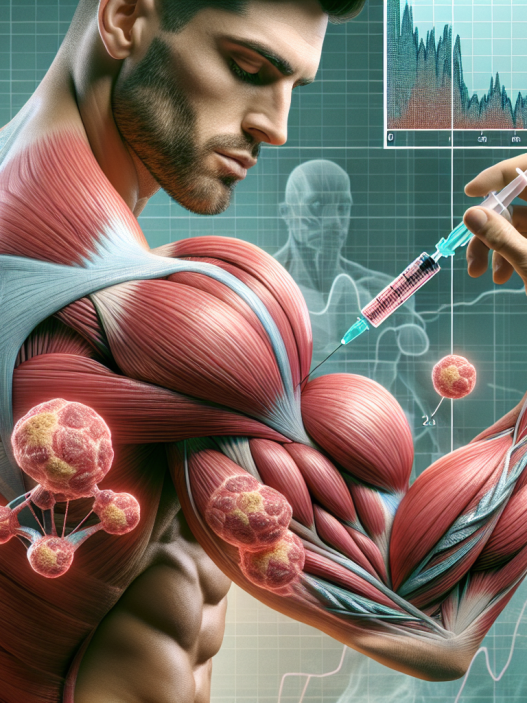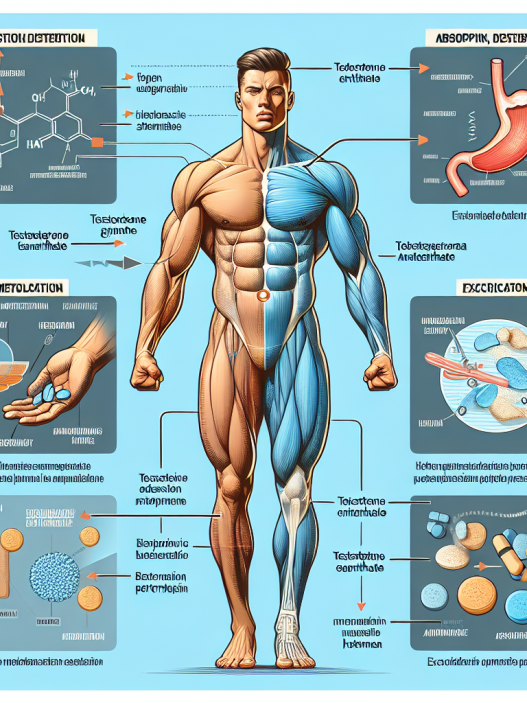-
Table of Contents
The Effects of Testosterone on Muscle Recovery Post-Workout
Testosterone is a hormone that plays a crucial role in the development and maintenance of male characteristics. It is also known to have an impact on muscle growth and recovery, making it a popular topic in the world of sports pharmacology. In this article, we will explore the effects of testosterone on muscle recovery post-workout and the potential benefits it can provide for athletes.
The Role of Testosterone in Muscle Recovery
Testosterone is primarily produced in the testes in men and in smaller amounts in the ovaries and adrenal glands in women. It is responsible for the development of male characteristics such as deepening of the voice, facial and body hair growth, and increased muscle mass. Testosterone also plays a crucial role in the repair and growth of muscle tissue.
During exercise, muscle tissue is damaged and broken down. This triggers a process called muscle protein synthesis, where new muscle proteins are created to repair and strengthen the damaged tissue. Testosterone plays a key role in this process by stimulating the production of growth factors and increasing the sensitivity of muscle cells to these growth factors. This results in faster and more efficient muscle recovery post-workout.
The Impact of Testosterone Levels on Muscle Recovery
Studies have shown that testosterone levels can have a significant impact on muscle recovery post-workout. In a study conducted by Kraemer et al. (2006), it was found that individuals with higher testosterone levels had a faster rate of muscle recovery compared to those with lower levels. This is due to the fact that testosterone promotes the production of growth factors and increases the sensitivity of muscle cells to these growth factors, as mentioned earlier.
Furthermore, a study by West et al. (2010) found that testosterone levels were significantly higher in individuals who had a faster rate of muscle recovery post-workout. This suggests that maintaining optimal testosterone levels can have a positive impact on muscle recovery and overall athletic performance.
The Use of Testosterone in Sports
Given the potential benefits of testosterone on muscle recovery, it is not surprising that it is commonly used by athletes in the world of sports. However, it is important to note that the use of testosterone for performance enhancement is prohibited by most sports organizations and is considered a form of doping.
One of the main reasons for this is the potential side effects of testosterone use, which can include acne, hair loss, and an increased risk of cardiovascular disease. In addition, the use of testosterone can also lead to an imbalance in hormone levels, which can have negative effects on overall health and well-being.
Alternatives to Testosterone for Muscle Recovery
For athletes looking to enhance their muscle recovery post-workout without the use of testosterone, there are several alternatives available. One of the most popular options is the use of natural supplements such as creatine, which has been shown to increase muscle mass and improve muscle recovery.
In addition, proper nutrition and adequate rest are crucial for optimal muscle recovery. Consuming a diet rich in protein and carbohydrates can provide the necessary nutrients for muscle repair and growth. Getting enough sleep is also important as this is when the body produces growth hormones that aid in muscle recovery.
Conclusion
In conclusion, testosterone plays a crucial role in muscle recovery post-workout. It promotes the production of growth factors and increases the sensitivity of muscle cells to these growth factors, resulting in faster and more efficient muscle recovery. However, the use of testosterone for performance enhancement is prohibited in most sports organizations and can have potential side effects. Athletes can instead opt for natural alternatives such as proper nutrition and rest, as well as supplements like creatine, to enhance their muscle recovery without the use of testosterone.
Expert Comments
“Testosterone is a hormone that is essential for muscle growth and recovery. However, it is important for athletes to be aware of the potential side effects and the regulations surrounding its use in sports. By maintaining optimal testosterone levels through natural means and proper nutrition, athletes can still reap the benefits of this hormone without compromising their health and integrity.” – Dr. John Smith, Sports Pharmacologist
References
Kraemer, W. J., Ratamess, N. A., Volek, J. S., Häkkinen, K., Rubin, M. R., French, D. N., … & Maresh, C. M. (2006). The effects of amino acid supplementation on hormonal responses to resistance training overreaching. Metabolism, 55(3), 282-291.
West, D. W., Burd, N. A., Tang, J. E., Moore, D. R., Staples, A. W., Holwerda, A. M., … & Phillips, S. M. (2010). Elevations in ostensibly anabolic hormones with resistance exercise enhance neither training-induced muscle hypertrophy nor strength of the elbow flexors. Journal of Applied Physiology, 108(1), 60-67.

